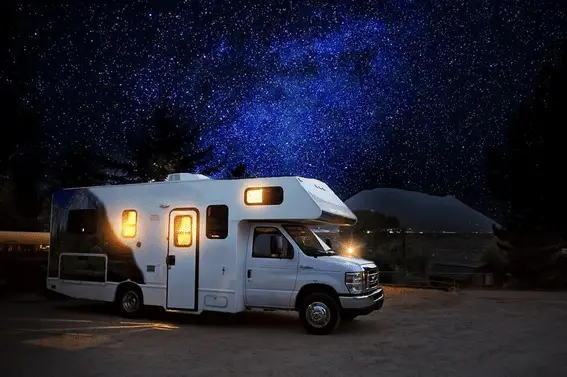Nearly all of us got stuck at home for months because of the pandemic. Fortunately, some states have lifted their lockdown orders.

Campgrounds and RV parks are some of the best places to be to destress and reconnect with nature, especially now that the lockdown restrictions are starting to ease up in several places. But it should be noted that these places don’t have electric hookups.
Sure, there are motorhomes these days that are already equipped with generators onboard. Yet, there are still others that don’t come with this feature.
If your RV doesn’t have a built-in generator, you’ll likely need to invest in one before you hit the road. This, needless to say, means you’ll need to do a bit of shopping. But not everyone knows where to begin as the options are endless. If you’re still a bit confused about which one to buy, here’s what you should look for.
Fuel
One of the first qualities that you need to look for in a generator is the fuel that it runs off of. This is important to consider because, needless to say, without the right type of fuel, you won’t be able to start and use your generator.
Generators for RVs can run in four different types of fuel: gasoline, propane (also known as LP), and diesel. Others can use two different fuels, but usually, a deciding factor that you can depend on is the availability of the fuel in your area.
Some may say diesel is better than gas, or vice versa, but is it readily available in your area? When buying a generator, you’ll want to decide which fuel is most convenient for you, so filling it won’t be a hassle.
Price
When shopping for a generator, most of us can get easily enticed by more affordable deals. Of course, paying for a generator that’s worth hundreds of dollars is no joke, so many would likely resort to cheaper ones.
But don’t sacrifice the quality of your generator for the price. Some RV generators might come with an expensive tag, but their quality isn’t sacrificed. So, if you’re planning to use it often for a longer time, we’d say it’s a better idea to purchase a high-quality one, even if it means you’ll have to spend a few extra bucks.
Noise
Often, campers overlook how much noise their generator makes because it’s common among conventional generators. But, unfortunately, they generate noise pollution, which can affect your experience, as well as the other campers.
If you’re purchasing a generator, it’s always best to opt for a quieter one instead. This will give you a better camping experience. However, note that quality like this comes with a price.
Inverter generators for RVs are quieter than conventional ones. However, they aren’t as cheap as the latter. Still, it’s worth the price as you’re guaranteed a better camping experience.
Weight
If you’re planning to travel from one place to another frequently, the weight of an RV generator you’re eyeing matters too. Since you’ll be traveling more, you’ll need something that’s easy to carry and transport, of course, for the sake of convenience.
The inverter-style generator is a good fit. It’s light and compact. But then again, it will likely cost you more too. Even so, it’s worth considering due to the convenience that it will provide you.
Size
Yes, size matters, especially if you’re planning to travel more frequently. It is important to base your purchasing decision on a generator’s size because it will affect your RV’s space.
If your RV is small, you’ll want to steer clear of huge generators. Sure, the bigger a generator is, the more powerful it is. However, make sure that you consider how it would fit your RV too. This way, you will have enough room in your RV to store other items you’ll need.
Generators for RVs vary in power output. That said, you’ll need to take a look at it too, so you’ll know if it can supply you with the amount of power you’ll need as you hit the road.
These generators usually put out 2,000 to 4,000 watts of electricity. If you only have a small trailer and you won’t be needing plenty of power, a 2,000-watt unit will do. But if you’ll be using more appliances frequently throughout your camping, you’ll need something that will offer you 3,000 watts or more.
Camping sure has a ton of benefits for the mind and body. However, expect that there won’t be any source of electricity out there unless you have a good generator.
